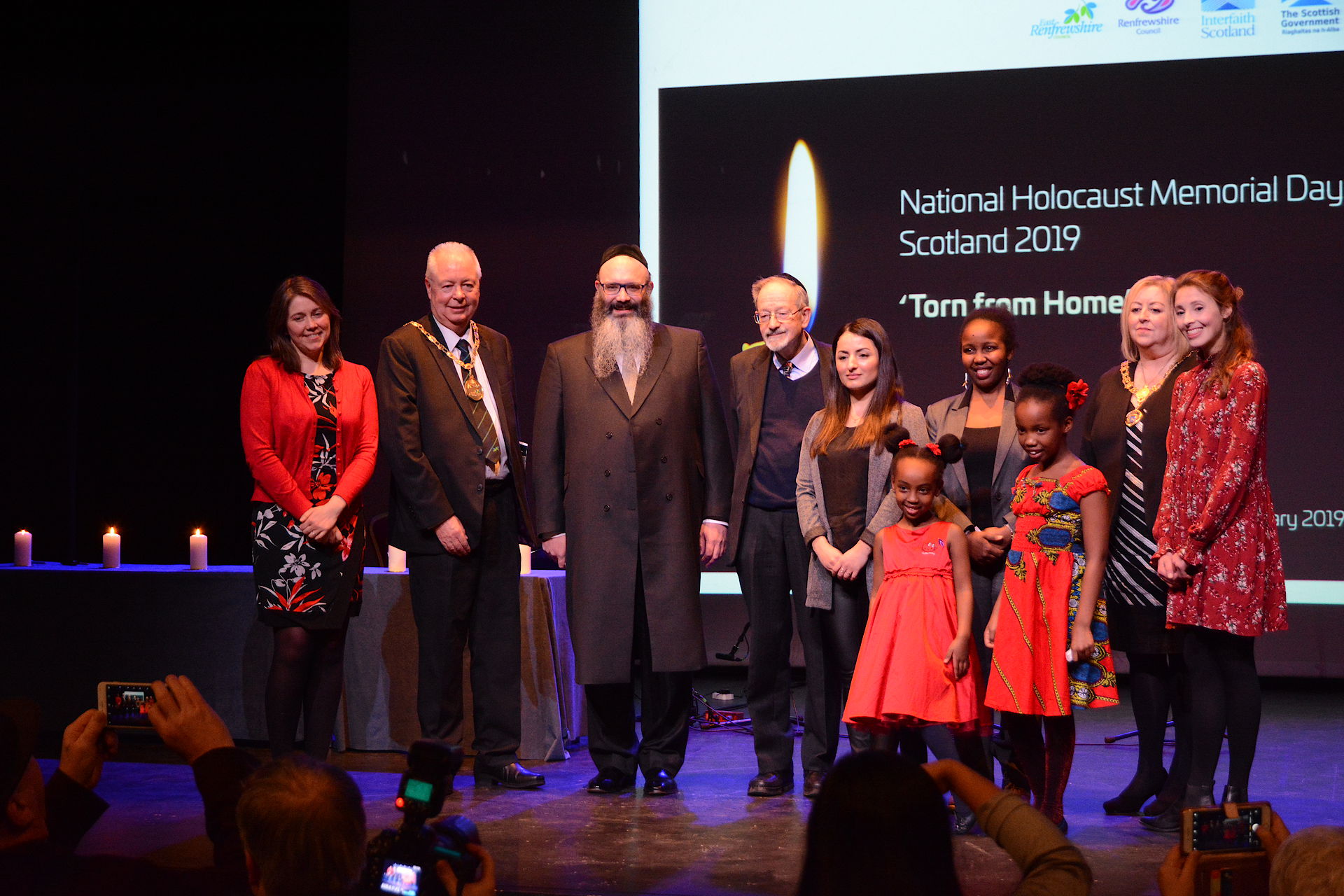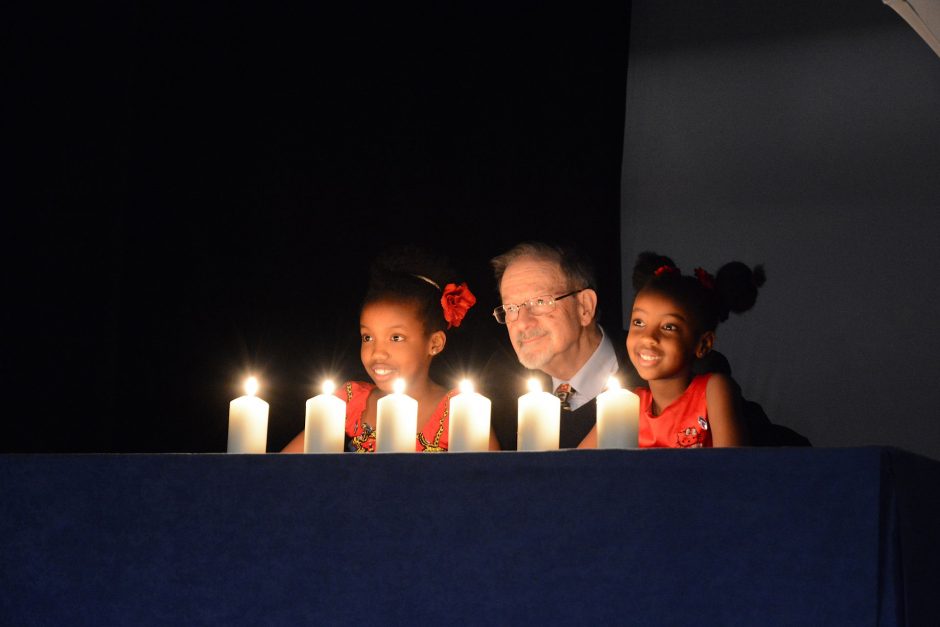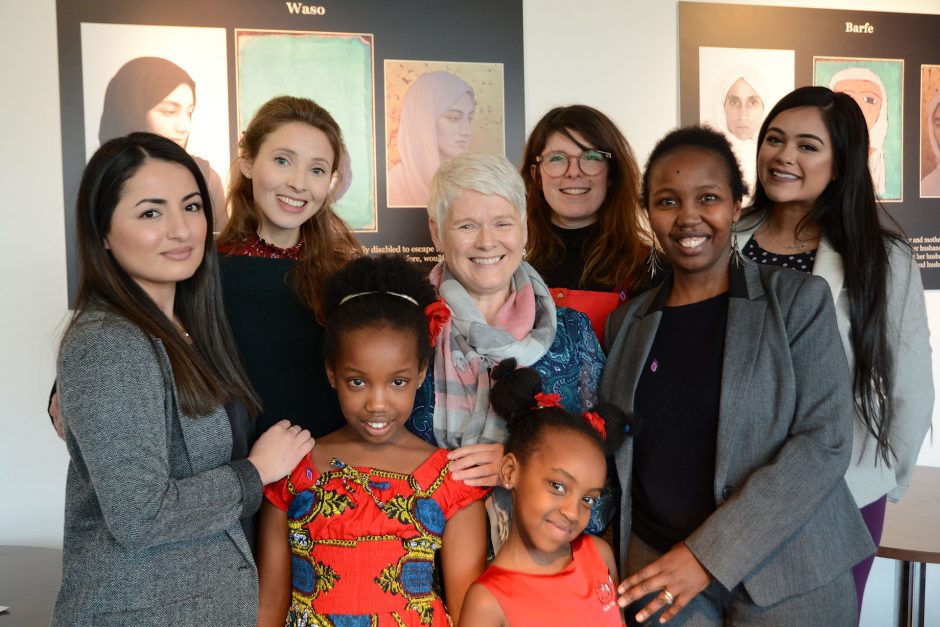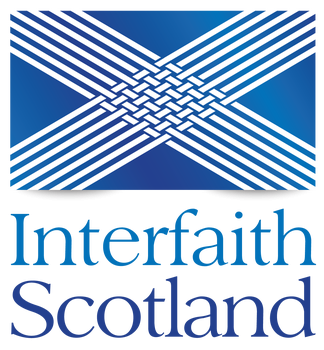Holocaust Memorial Day 2019

Holocaust Memorial Day is a day of remembrance for the millions of people murdered in the Holocaust, under Nazi Persecution, and in the genocides which followed in Cambodia, Rwanda, Bosnia, and Darfur. The theme this year was ‘Torn from Home’. Torn from home encouraged people to reflect on how the enforced loss of a safe place to call ‘home’ is part of the trauma faced by anyone experiencing persecution and genocide. ‘Home’ usually means a place of safety, comfort and security but tragically millions of people around the world continue to be displaced and are facing many difficulties trying to find and build new homes in strange countries, separated from their families, or in hostile and dangerous environments. Scotland has welcomed many refugees from all over the world, most recently over 2500 from Syria. It has also been 25 years since the genocide in Rwanda began and the impact of this is still being felt within the Rwandan community who are now settled in Scotland.
To mark HMD 2019, Interfaith Scotland created a week-long programme of events for Holocaust Memorial Day around this theme and worked in partnership with East Renfrewshire and Renfrewshire Councils who jointly hosted Scotland’s National Holocaust Memorial Day event on Monday 28th January. The event, held at Eastwood Park Theatre, was an evening of music, poetry and survivor stories which highlighted the true horror of the Holocaust and subsequent genocides.
Telling his story was Martin Stern, who in spring 1944, aged five, was arrested with his one year old sister by the Nazis in the Netherlands because their father was a Jew. The vast majority of such children were gassed in the Auschwitz or Sobibor killing centres, but thanks to a chain of remarkable events, both were among the tiny number of children who escaped and survived. Last May he was honoured with the MBE by the Queen for his invaluable work. Delkhwaz Haciy also spoke that evening. She is part of the Yazidi community and board Member of Yazda, an organisation that works tirelessly to assist the Yazidis in their recovery from the 2014 Genocide, as well as prevent any future genocides against the Yazidi people and other minorities. Delkhwaz highlighted to us that the atrocities of the past are still present today and shared the story of her friend Farida Abbas Khalaf, who is one of more than 6,500 Yazidi survivors of ISIS (Islamic State of Iraq and Syria) enslavement and genocide. Farida was born in Kocho-Sinjar, Northern Iraq, and was a high school student when ISIS attacked her village, killing men and taking women and children hostages. She was then taken into captivity where she was subjected to unimaginable suffering including physical and mental abuse. Since her escape, Farida has been an effective part of Yazda global advocacy campaign to bring ISIS militants to justice and has published her book ‘The Girls who Beat ISIS’. Delkhwaz was joined on stage by British artist Hannah Rose Thomas, who had spent time with Yazidi survivors in Iraq using her powerful art to advocate on their behalf. The audience heard about her experiences in the refugee camps with Yazidi women and were able to view her amazing work at the end of the event and during that week.

The 2019 memorial was held in partnership with the Holocaust Memorial Day Trust and the Scottish Government, who were represented by Cabinet Secretary for Communities and Local Government, Aileen Campbell. As well as the speakers, there were music performances by pupils from Paisley Grammar and East Renfrewshire schools and a powerful poem recited by two young Rwandan children of a survivor who now lives in Edinburgh, marking the 25th anniversary of the genocide in Rwanda.
To close the event, Rabbi Moshe Rubin chanted a Jewish prayer, memorial candles were lit and the audiences were asked to take a minute to reflect on the evenings powerful message. Finally, guests were able to view the Yazidi artwork as well as the Gathering the voices exhibition, which brings to life the experiences of the people who came to Scotland to escape the Holocaust.

